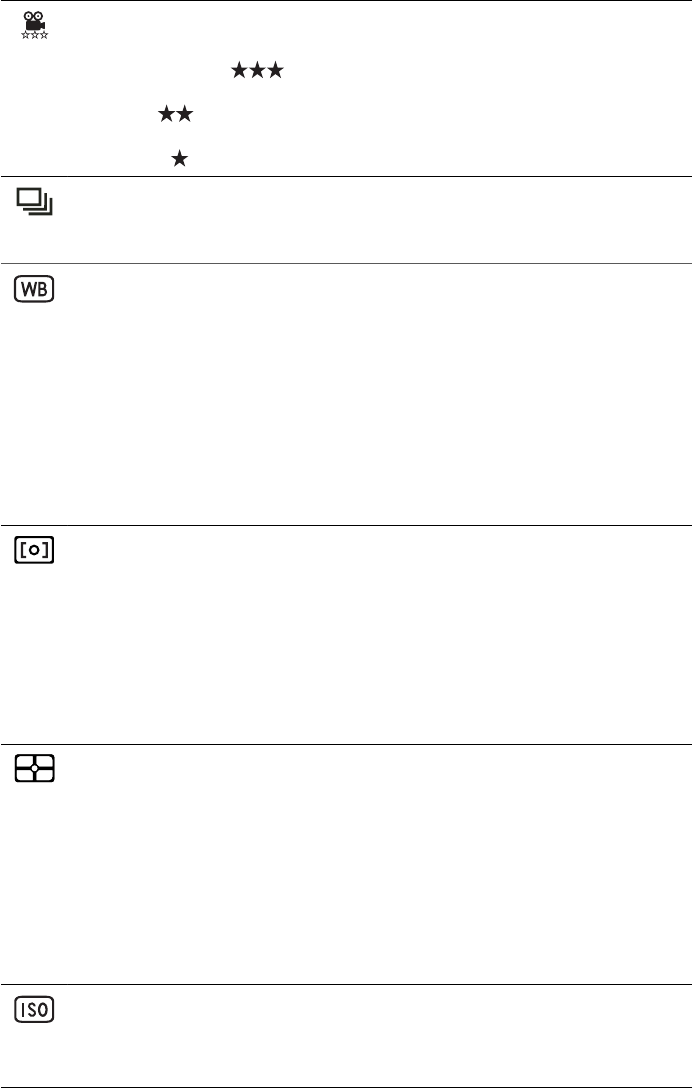
Video Quality—Sets resolution and compression for video clips. The fewer
stars, the greater the compression.
● Normal (VGA
) (Default)—For outdoor action video clips or
printing individual video frames up to 10.2 by 15.2 cm (4 by 6 in).
● VGA
—For indoor video clips or printing individual video frames up
to 7.6 by 12.7 cm (3 by 5 in).
●
QVGA
—For capturing longer video clips or e-mailing shorter clips.
Burst—For taking two or more shots quickly in succession (see Using the
Burst setting on page 24).
On, Off (Default)
White Balance—Balances color based on lighting conditions. For more
information, see White Balance on page 25.
● Auto (Default)—Corrects for scene illuminance. For general picture
taking.
● Sun—For outdoor scenes in sunny or cloudy conditions.
● Shade—For outdoor scenes in shade or at dusk.
● Tungsten—For indoor scenes with incandescent or halogen lighting.
● Fluorescent—For indoor scenes with fluorescent lighting.
● Manual—For setting a custom White Balance based on your target
subject. To set the white balance, select Manual, then follow the on-
screen instructions.
Auto Focus Area—Selects between a wide, multi-zone focus region and a
spot focus region. For more information, see Focusing on the subject
on page 12.
● Multi (Default)—Use this setting for general-purpose picture taking or to
focus on a subject not in the center of the scene. The camera searches
for focus in each of five zones.
● Spot—Use this setting when the camera keeps focusing on something
other than your subject. The camera focuses on a small area in the center
of the scene.
AE Metering—Specifies which region of a scene the camera uses to calculate
the exposure.
● Average—Useful when you want the entire scene to be used when
calculating exposure.
● Center-Weighted (Default)—Useful when the subject of the picture is in
the center of the scene. Exposure is based more on the subject than its
surroundings.
● Spot—Useful in backlit scenes or when the subject is very dark or light
compared to the rest of the scene. For best results, use Focus Lock (see
Using Focus Lock on page 13) with Spot.
ISO Speed—Adjusts the camera’s sensitivity to light. For more information,
see ISO speed on page 25.
● Auto (Default)—Camera selects the best ISO speed for scene.
● ISO 100—For best quality.
Chapter 2
(continued)
22


















